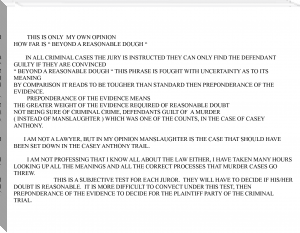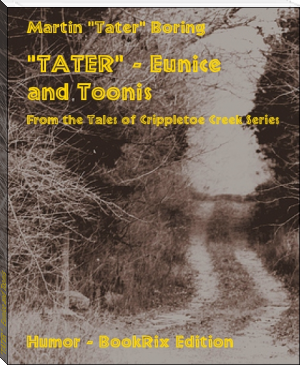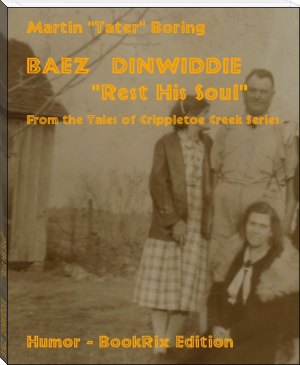All Aboard; or, Life on the Lake<br />A Sequel to "The Boat Club" by Oliver Optic (ebook reader ink .txt) 📗

- Author: Oliver Optic
Book online «All Aboard; or, Life on the Lake<br />A Sequel to "The Boat Club" by Oliver Optic (ebook reader ink .txt) 📗». Author Oliver Optic
"A life on the ocean wave,
A home on the rolling deep."
Mr. Walker tried to make the sceptical ones believe that Wood Lake was so entirely different from the "rolling deep" as scarcely to suggest the idea of a ship, or of the ocean. But the disadvantages were trivial compared with the benefits which all acknowledged to have derived from the associations, even independently of the libraries, the lectures, and the debating societies at the halls.
Tony and his companions soon returned with the Munroe family, who were cordially received by the guests. Captain Sedley expressed his sympathy for the poor man, regretting that he had not known his situation before.
"I would have bought your place myself rather than have had you sacrifice your property to the cupidity of such a man," said he.
"You are very good, sir," replied Mr. Munroe; "but I had not the courage to state my circumstances to anybody. 'Squire Chase is a very hard man; even when I paid him the money, which the kindness of the boys enabled me to do, he was so angry that he could scarcely contain himself. He swore at me, and vowed he would have vengeance."
"He must be a very disagreeable neighbor."
"He is, indeed."
"On with the dance!" shouted Frank, in the most exuberant spirits; and the rich and the poor man dropped the subject.
The boys and girls had formed a line round the May-pole, and the band commenced playing a very lively air. As the inspiring notes struck their ears, they began to jump and caper about, taking all sorts of fantastic steps, which it would have puzzled a French dancing master to define and classify. Most of the boys and girls knew nothing of dancing, as an art; but I venture to say they enjoyed themselves quite as much as though they had been perfectly proficient in all the fashionable waltzes, polkas, and redowas. Their hearts danced with gladness, and their steps were altogether impromptu.
Then came the ceremony of crowning the Queen of May, in the person of Mary Weston, which was performed in the most gallant style by Frank Sedley. Another dance succeeded, and then came the feast. A great many good things were eaten, a great many fine things said, and a great many patriotic and complimentary toasts were drank. The band played "Hail Columbia," "Yankee Doodle," and many other spirited tunes, and Mr. Walker was very much astonished, as well as amused, to hear some of the boys make speeches, flowery and fine, which had evidently been prepared for the occasion, when they were "called up" by the toasts.
After the feast was over, the party divided itself into little knots for social recreation. Frank and Mary Weston took a walk on the beach, and the rest of the boys and girls climbed over the rocks, amused themselves in the swing which Uncle Ben had put up, or wandered in the grove. Boys and girls always enjoy themselves at such seasons, and my young readers need not be told that they all had a "first-rate time."
I do not mean all; for two members of the Zephyr Club had wandered away from the rest of the party to the north side of the island. They were concealed from view by a large rock; but if any one had observed them, he could not have failed to see that they were exceptions to the general rule—that they were not happy. The two boys were Charles Hardy and Tim Bunker. Frank had been pained to notice that an unnatural intimacy had been growing up between them for several days; and he had already begun to fear that it was in the heart of Tim to lead his weak-minded associate astray.
"Now, let's see how much there is in it," said Tim.
"I am afraid to open it," replied Charles, as he glanced nervously over the rocks.
"Git out!"
"I am doing wrong, Tim; I feel it here." And Charles placed his hand upon his heart.
"Humph!" sneered Tim. "Give it to me, and I will open it."
"We ought not to open it," replied Charles, putting his hand into his pocket, and again glancing over the top of the rocks. "Besides, Tim, you promised to be a good boy when we let you into the club."
"I mean to have a good time. We might have had if you fellows hadn't given away all that money."
"I didn't do it."
"I know you didn't, but the rest on 'em did; so it's all the same. They are a set of canting pups, and for my part I'm tired on 'em. Frank Sedley don't lord it over me much longer, you better believe! And you are a fool if you let him snub you as he does every day."
"I don't mean to," answered Charles. "I believe the fellows all hate me, or they would have made me coxswain before this time."
"Of course they would. They hate you, Charley: I heard Frank Sedley say as much as that the other day."
"He did?"
"Of course he did."
"I wouldn't have thought that of him," said Charles, his eye kindling with anger.
"Let's have the purse, Charley."
Charles hesitated; but the struggle was soon over in his bosom, and he took from his pocket a silken purse and handed it to Tim.
"We are doing wrong, Tim," said he, as a twinge of conscience brought to his mind a realizing sense of his position. "Give me back the purse, and I will try to find the owner."
"No, you don't!" replied Tim, as he opened one end of the purse and took therefrom a roll of bank bills, which he proceeded to count.
"Do give it back to me! I am sure the owner has missed it by this time."
"No matter if he has; he won't get it again in a hurry," answered the
Bunker, coolly. "Sixty dollars in bills! Good!"
"Give it to me, or I will go to Captain Sedley and tell him you have it."
"Will you?"
"I will."
"If you do, I'll smash your head," said Tim, looking fiercely at him. "Don't be a fool! With this money we can have a first-rate time, and nobody will be any the wiser for it."
"I am afraid we shall be found out."
Probably Charles was more afraid of that than of the wicked act which he had permitted himself to think of doing. He had found the purse on the beach a little while before. When he had told Tim of it, the reckless fellow, still the same person as before, notwithstanding his promises and his altered demeanor, had led him over to this retired spot in order to get possession of the purse.
"Nonsense! Nobody will suspect you," replied Tim, as he poured out the silver and gold in the other end of the purse.
"I never did such a thing in my life."
"No matter; there must be a beginning to everything."
"What would my mother say?"
"She will say you are a clever fellow if you don't get found out. Eleven dollars and a quarter in specie! That makes seventy-one twenty-five—don't it?"
"Yes."
"All right! We will just dig a little hole here, and put the purse into it," continued Tim, as he scooped out a hole in the sand, and dropped the ill-gotten treasure into it.
Filling up the hole, he placed a large flat stone upon the spot, which further secured the purse, and concealed the fact that the sand had been disturbed.
"I am sure we shall get found out," said Charles, trembling with apprehension.
"Nonsense! Keep a stiff upper lip; don't stop to think, and all will go well. But, my hearty, if you peach on me, I give you my word, I will take your life before you are one month older—do you hear?" And Tim's fierce looks gave force to his words. "Now, we will go back to the rest on 'em before they miss us. Mind you don't say anything, nor look anything."
Charles followed Tim back to the other side of the island, and both of them joined the sports of the day. The afternoon passed away, and nothing was said of the purse. The owner had not missed it, and Tim congratulated himself on the circumstance. Charles tried to be joyous, and though he did not feel so, he acted it so well that no one suspected him of harboring so vile a sin within his bosom.
"All aboard!" said Frank, and the band commenced playing "Home, Sweet
Home."
In due time the party were all transported to the shore, and everybody went home highly delighted with the day's amusements. The Zephyr was housed, and the crew dismissed, but not a word was said about the purse.
CHAPTER XIII. THE LIGHTHOUSE.During the month of May, the members of the two clubs continued to spend many of their leisure hours on the lake; but my young friends must not suppose that life was to them a continuous holiday; and, because these books are devoted chiefly to their doings on the water, that boating was the only, or the principal business that occupied them. They had their school duties to perform, their errands to do, wood to split, yards to sweep; in short, they had to do just like other boys. A portion of Wednesday and Saturday afternoon, and of their other holidays, was given to these aquatic sports; so that they were really on the lake but a small part of the time. Probably, if they had spent all their leisure in the boats, the exercise would have lost its attractions, besides interfering very much with their home and school affairs. Pleasures, to be enjoyed, should be partaken of in moderation. Boys get sick of most sports in a short time, because they indulge in them too freely.
Nothing specially worthy of note occurred in either club till near the end of the month of May. The intimacy between Charles Hardy and Tim Bunker was observed to increase, though no one had any suspicion of the secret which had cemented the bond of their union.
The lost purse was the property of Mr. Walker. At a subsequent visit to Rippleton, he had mentioned his loss, but he had no idea where he had dropped it. Tim congratulated his still unwilling confederate on the success of his villainy. Mr. Walker did not even know whether he had lost his money in the town or not; so, of course, he had no suspicion of them.
"You are a first-rate fellow, Charley, but you are too chickenish by half," said Tim Bunker.
"I don't feel right about it, and I wish I had given up the purse when I found it."
"Pooh!"
"I meant to do so."
"I know you did. You were just fool enough to do such a thing. If it hadn't been for me, you would have done it."
"O, I wish I had!"
"Don't be a fool, Charley."
"I would give the world to feel as I felt before I did this thing."
"Don't think any more about it."
"I can't help thinking. It worries me nights."
"Go to sleep then."
"I can't. What would Frank say if he knew it?"
"Humph! Frank again!"
"They would turn me out of the club."
"You are no worse than any of the rest of them."
"They wouldn't steal," replied Charles, warmly.
"Don't you believe it. If I should tell all I know about some of them, they wouldn't be safe where they are, let me tell you."
"What do you know, Tim?"
"I don't choose to tell."
Charles found some satisfaction in this indefinite accusation; but it was not enough to quiet his troubled conscience. Life seemed different to him since he had stolen the purse—he had not got far enough in wickedness yet to believe that it was not stolen. He felt guilty, and his sense of guilt followed him wherever he went. He could not shake it off. Everybody seemed





Comments (0)